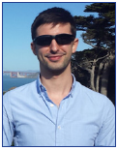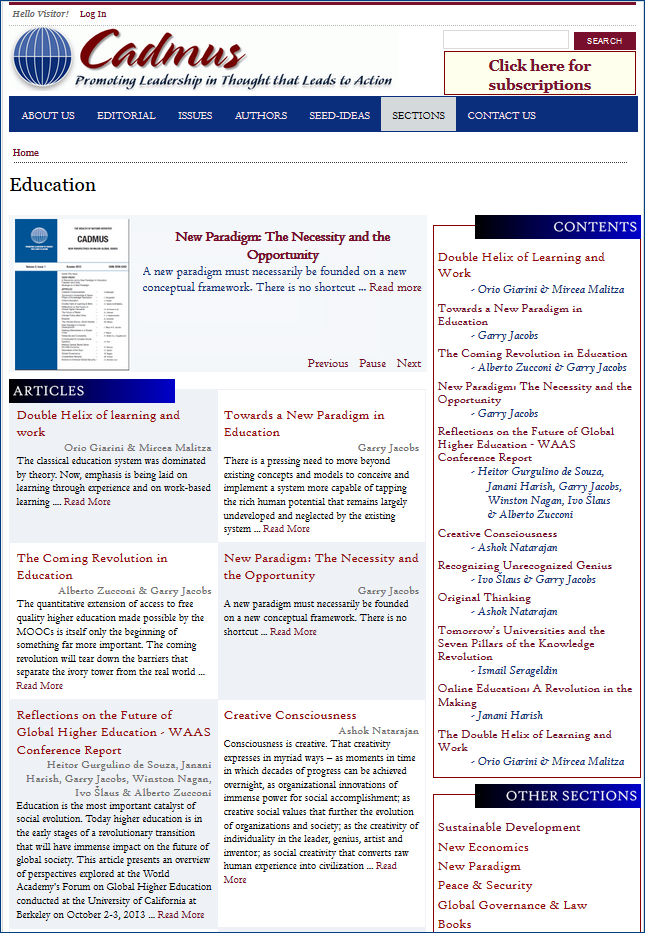Newsletter - December 2014
Click here to download the PDF version of the Newsletter
New Paradigm in Higher Education

|
On November 5-7, 2014 WUC co-sponsored an international conference in Almaty which highlighted the need to reinvent education to effectively address humanity’s pressing global challenges. A new paradigm in human development requires a new paradigm in education. Education is the most advanced and powerful technology yet created by human beings. Education is the foundation for the evolution of civilization and culture. These and related themes were examined at the conference on “New Paradigm of Sustainable Development: G-Global – a new form of global dialogue” co-organized with the World Academy of Art & Science and Al-Farabi Kazakh National University (KazNU). The conference examined the theoretical foundations and policy framework for a human-centered development paradigm capable of addressing the pressing challenges confronting humanity today. A detailed report about the conference can be found in the latest WAAS newsletter. A special session on higher education called for a shift from subject-centered to student-centered learning; from passive to active learning; from memorization to understanding and original thinking; from information and mental understanding to the development of the whole person; from academic and theoretical to lifecentred knowledge; from fragmented to integrated knowledge; from creating standardized products to fostering the development of resilience, individuality and creativity. A major objective of WUC is |
to bring together educators and all other stakeholders. Everyone mus tbe involved in a process that generates understanding and offers effective solutions to the problems society faces.
|
||
INSIDE THIS ISSUE |
|||
|
WUC Courses Individual Accomplishment Trans-disciplinary Science of Society Creating the Future of Higher Education IAUP, Japan Bridging the Gap Between Teaching & Learning, University & Society, Knowledge & Life Oxford Summit of Leaders, United Kingdom Education to Handle Challenges WUC’s Role in Future of Education, Italy Ecological Thinking & Education Ecological Education for Sustainable Development, Russia |
Person-centered Education BioVision, Egypt University Education to Transmit Values & Ethics Poznan Declaration Accessible, Quality Higher Education Universalizing Access, India Integrated Science of Management Value-based Management Education, India Tech Trends & News Pioneers in Education Competency-based Education Articles on Education in Cadmus |
||

|
|||
|
|
more inter-disciplinary. The new paradigm in education should consist of interrelated, rather than isolated subjects.”
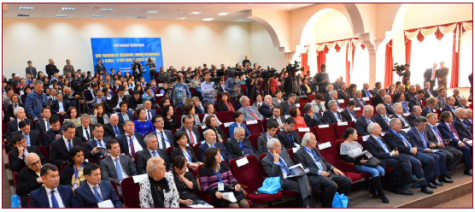
|
||
WUC MEMBER: Al-Farabi Kazakh National University
|
|||

The Beginning of a Vision: WUC & WAAS Trans-Disciplinary Foundation Courses |
|||
| The World University Consortium and World Academy of Art & Science conducted two pioneering graduate level courses at Inter-University Centre, Dubrovnik, Croatia from Aug 25 to Sep 6, 2014. Dag Hammarskjöld University College of International Relations & Diplomacy, Person Centered Approach Institute and The Mother’s Service Society were co-organizers. Ten faculty and more than ninety students participated in the course in the classroom or remotely through live, real-time webcasts. The complete course of video lectures, background papers and presentations is now freely available online. |
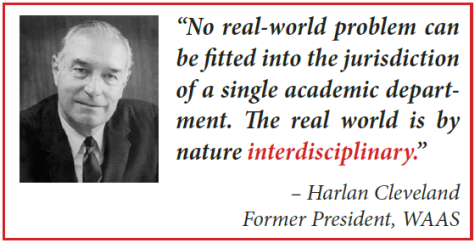
|
||
Individual Accomplishment, Growth and the Character of Life in Management, History, Literature, and PsychologyThe Individual is the catalyst of all social progress, the source of creativity, innovation, new ideas and new initiatives. The entrepreneur, inventor, social reformer, revolutionary leader, original thinker and creative artist are a few of its expressions. This transdisciplinary course explored the role of Individuality and Values in personal achievement, growth of personality and social evolution drawing on evidence from Management Science, History, Psychology and Literature. The course also examines the relationship between creative individuals and society, searching for insights into the principles and process that govern successful human initiatives and their consequences in various fields of life. It discusses the characteristics of high achieving individuals, individuality as catalyst for social change, role of relationships and networks, power of values, the biological, social, psychological and spiritual dimensions of life, the character of life, personal achievement, growth and self-realization. While the presentation is academic, the objective is to impart original insights and practical knowledge for personal growth and individuation. Faculty: Janani Harish, Garry Jacobs, Ljudmila Popovich, and Alberto Zucconi The following are excerpts with links to some of the lectures that comprise the first trans-disciplinary foundation course. The course lectures and papers can be found in the WAAS website. |
|||
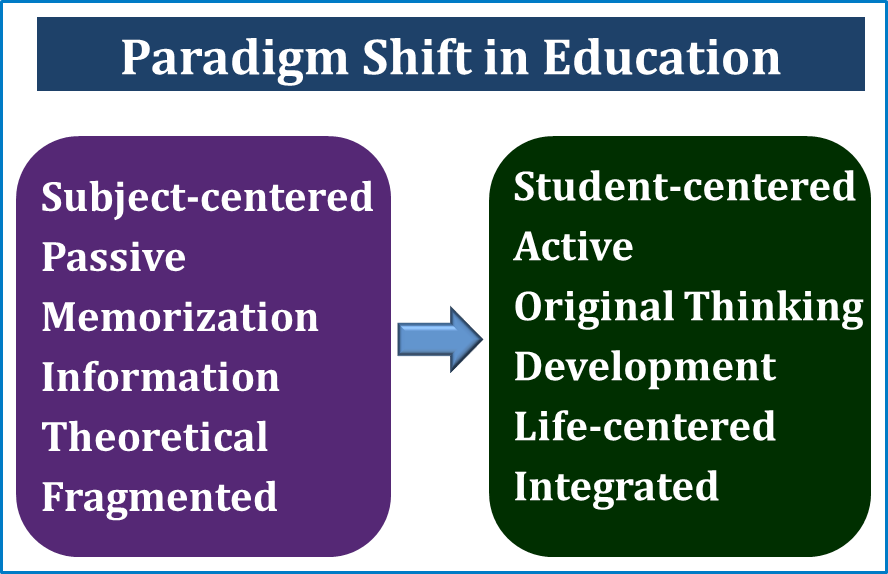
|
Past, Present & Future of Education “Knowledge is the sustenance of civilization and culture. Of all the technologies developed by humanity, none is as powerful and sophisticated as the means we have fashioned to gather, organize, store, share and transmit knowledge. We need to improve our education to cope effectively with our present and future challenges. New and effective ways to facilitate the capacity of integration of our ways of knowing are required.” PLAY THE VIDEO |
||
|
Ways of Knowing “All human accomplishment is made possible by our capacity to observe, record and transmit knowledge from person to person, generation to generation. Considering the whole, not merely the parts, refraining from judging the future from the past and considering points of view other than one’s own gives one knowledge for accomplishment.” PLAY THE VIDEO |
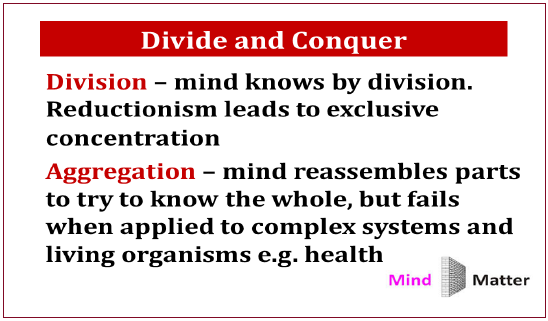
|
||
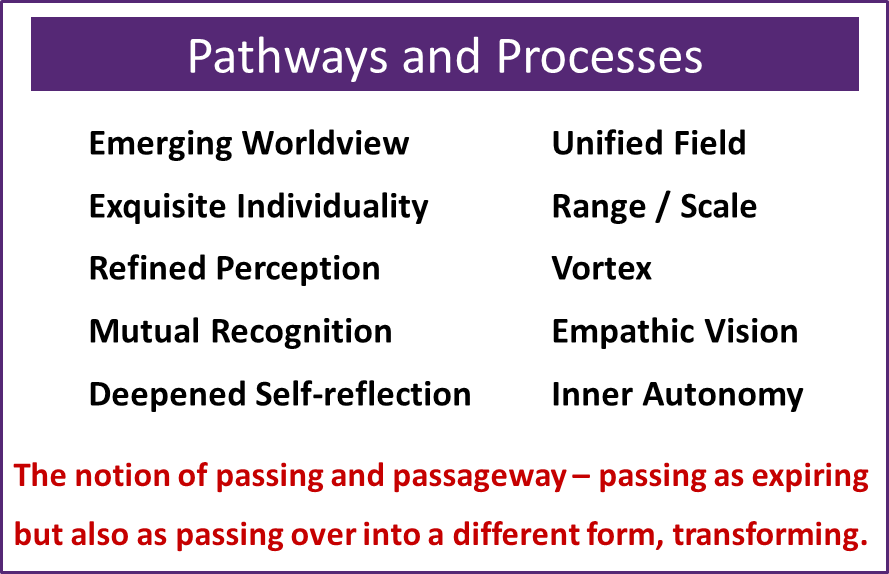
|
The Role of Human Relationships in Individual and Social Development “How can we cultivate in ourselves, in others, and in the way we relate to the other belief in the evolving well-being and a sense of greater safety and connectedness while refining all resources for the betterment of our individual condition as it intertwines with our collective?” PLAY THE VIDEO |
||
|
Power of Values “In all cases of sustained success, at any level, in any field, anywhere in the world, in the individual, organization or society, accomplishment has always been accompanied by high values. Just as physical skills are the channels through which physical energy is directed so that it produces results, values play a similar role at the psychological level. The quality of the values and the intensity of our commitment to them determine the level of our accomplishment.” PLAY THE VIDEO |
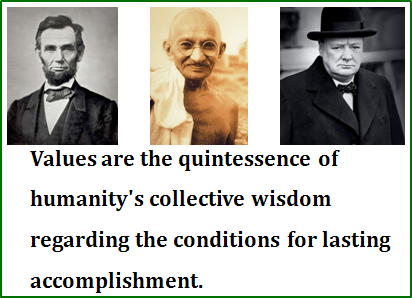
|
||
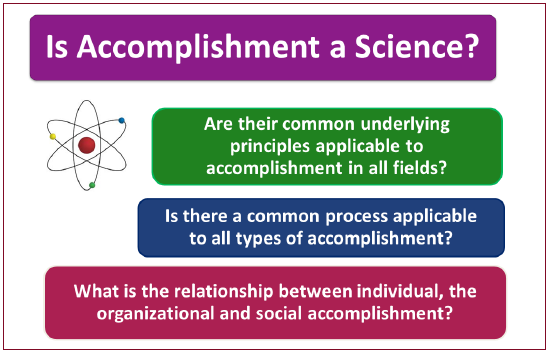
|
Process of Accomplishment “Mechanistic and compartmentalized social theory is inadequate to deal with the multi-dimensional complexity of social events and outcomes. Society is a complex, open, multi-leveled, conscious, creative web of human relationships – a living organism. An effective science of society would necessarily have to transcend disciplinary boundaries to identify principles & processes fundamental to all fields and forms of social activity, change, development and evolution.” PLAY THE VIDEO |
||
WUC CHARTER MEMBER: IUC |
|||
Toward a Trans-disciplinary Science of SocietyThe accelerated pace of social change, increasing complexity of interactions between fields and globalization of interactions presents humanity with a nexus of challenging problems – political, economic, legal, social, cultural, psychological and ecological – that defy comprehension and resolution by a piecemeal, sectorial approach based on the prevailing principles of social science. Efforts to combine and integrate perspectives from different disciplines are limited by the absence of a common conceptual framework. This six-day trans-disciplinary course explores common principles and processes governing survival, growth, development, evolution and social revolution applicable to all fields, including awareness, social energy, organization, networks, language, law, technology, money, complexity, power, culture, values, consciousness and ways of knowing. Faculty: Zbigniew Bochniarz, Janani Harish, Garry Jacobs, Ian Johnson, Winston Nagan, Roberto Poli, Ivo Šlaus, Karl Wagner and Alberto Zucconi The following are excerpts with links to some of the lectures that comprise the second trans-disciplinary foundation course. The course lectures and papers can be found in the WAAS website. |
|||
|
Uncertainty, Creativity and the Concept of Limits “Knowledge is a unique source. It is inexhaustible, and increases by sharing. We are the creators and depositors of knowledge. Our intrinsic resources still remain underutilized. A knowledge-based society is the best approach to assure and maintain sustainable global society.” PLAY THE VIDEO |
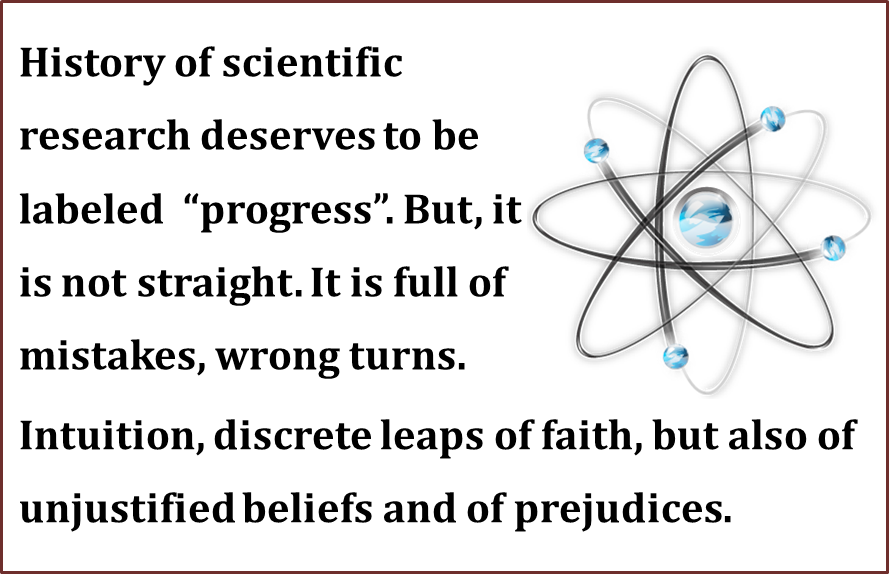
|
||
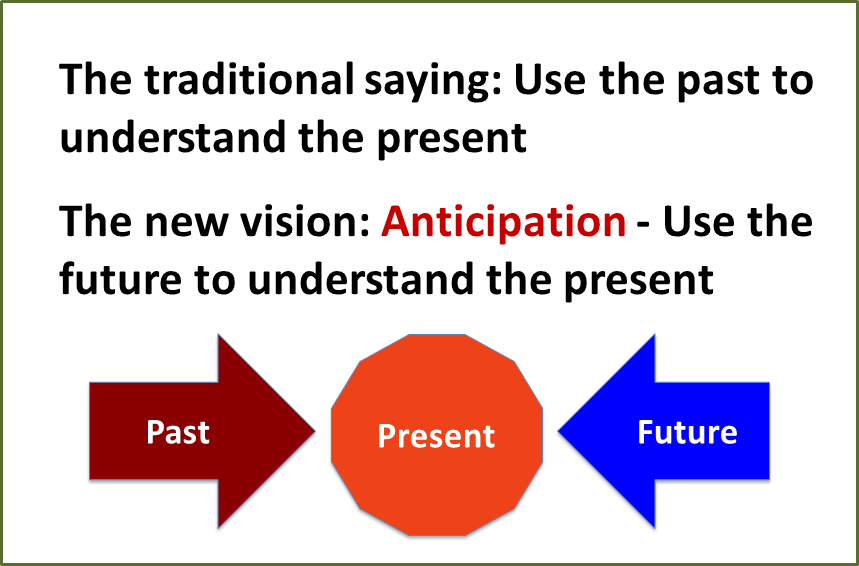
|
Toward a Tipping Point in the Human and Social Sciences “The present is already future-bound. Not only can we use the past to understand the present, but we can use the future to understand it too. We need to study the future to take better decisions today. Human and social sciences should move from being primarily past-oriented sciences to become primarily futureoriented sciences.” PLAY THE VIDEO |
||
|
The Evolution of the Rule of Law “The central function of the notion of the rule of law is that every individual has both rights and duties with respect to all the value needs in social process. The central proposition of the rule of law is to secure the legal rights and the legal duties of all members of the community from having their value claims and needs arbitrarily expropriated by the most powerful participator in the community.” PLAY THE VIDEO |
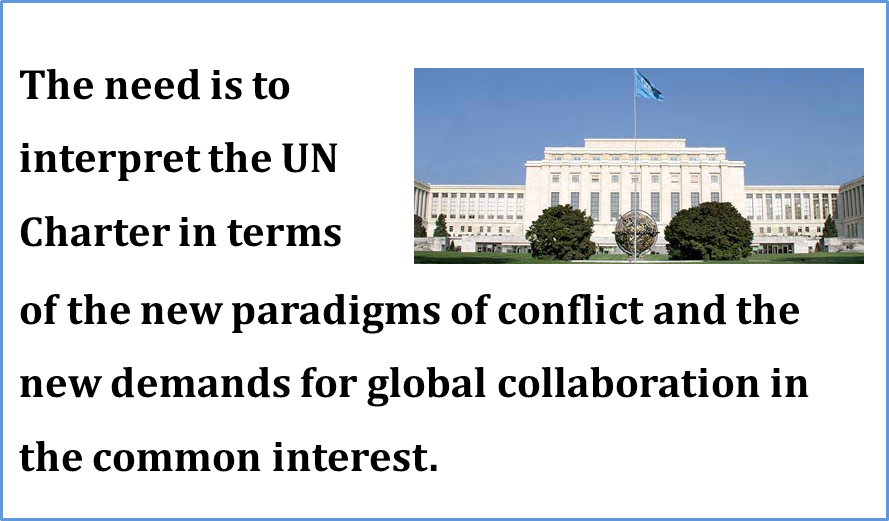
|
||

WUC partners with IAUP at Yokohama, Japan, June 2014
The WUC session focused on the need for a New Paradigm in Global Higher Education. About 400 rectors, presidents and vice-chancellors from around the world participated in the conference. The Secretary of the United Nations, Ban Ki-moon, addressed the audience through a video message. Dignitaries from the UN, the Japanese government, the United Nations University and other world organizations and students addressed the audience. The WUC special session on the need for a New Paradigm in Higher Education was chaired and introduced by Neal King, WUC Director and Chair, IAUP Board. Heitor Gurgulino de Souza, President of WUC and former Rector of UN University, stressed the vital role played by education in human development. Global social challenges necessitate rapid advances in knowledge generation and knowledge delivery to keep pace with rapidly changing needs. Garry Jacobs, WUC CEO, described the present situation as “the very early stages of a revolution in global higher education akin to the Internet in 1994 which will radically transform the mode of knowledge delivery, the customer base, the content, the faculty and the way we manage educational delivery. The challenges we face are too important and too great to be left to chance, incremental processes of institutional change. The world needs leadership that can bring in new ideas and perspectives yet is strongly grounded in the current realities and the problems facing higher education today.” Organizations such as IAUP and WUC need to play a key role in meeting this challenge. |
|||
WUC CHARTER MEMBER: IAUP |
|||
Bridging the Gap between Teaching & Learning, University & Society, Knowledge & LifeOxford Summit of Leaders – Oxford, UK, October 2014
The new paradigm in higher education needs to address the multidimensional global challenges and the unprecedented intellectual, economic, social, technological and organizational capacities now available to humanity. Leadership in thought is needed to provide educational leadership to society. The principal goal of education should be to promote qualities of leadership and individuality. Jacobs called for revolutionary ideas commensurate with the revolutionary social forces now acting to shape the future of education. 
|
|||
Remote LaboratoryRL is a layer between the user and lab equipment that allows users to carry out experiments and laboratory tasks over the Internet. The remote infrastructure eliminates the need for physical proximity of the equipment and exposes students to a wide range of science and engineering education. The Chemistry department of Thompson Rivers University in Canada provides anytime/anyplace access to cyber-enabled instrumentation for chemical analysis. |
Adaptive Learning SoftwareLearning analytics is the measurement and analysis of student interaction with texts and other factors in the learning environment. Analytics have been used to predict the performance of students and enable the teacher to intervene in a timely manner. They also improve student retention and provide a high quality, personalized experience for learners. Adaptive learning software like Cerego, Knewton, Smart Sparrow are widely used in online learning platforms. |
||

WUC’s Role in the Future of Education – Florence, Italy, June 2014 |
|||
|
“What kind of education will enable us to manage the present and future challenges?” asked Alberto Zucconi, WUC Secretary General, at the “Future of Eduation” conference organized by Pixel in Florence, Italy on June 12-13, 2014. World University Consortium was invited to participate in the international conference that aimed to promote transnational cooperation and the sharing of best practice in the field of innovation in Education. Professor Zucconi presented a paper “The World University Consortium: a New Kind of Consortium, including all the Stakeholders and Promoting through Empowerment a Systemic, Interdisciplinary, Intersectorial, Intercultural Education” co-authored with Heitor Gurgulino de Souza, Garry Jacobs, Winston Nagan and Ivo Šlaus. The paper argues that in this period of human history the development of accessible, affordable, |
In the final keynote address, Professor Zucconi stressed the need for concerted international collaboration as envisaged by the establishment of WUC. “A evolution in Higher Education is upon us and no force or agency on earth can ultimately prevent it. The question is not whether change is in the offing, but whether that change will be in the desired and most desirable direction. WUC has been established to attempt to steer the momentum toward the best possible future.” |
||
WUC CHARTER MEMBER: IACP |
|||
Pioneers in Education: Providing Alternate Pathways to Education and Career |
|||
|
In an interview for WUC, Dale Stephens, Founder, UnCollege, explained that UnCollege teaches the types of skills you’re supposed to learn in school but that no one ever bothers to teach, such as time management, social capital, motivation, negotiation, and more. |
These metalearning skills are useful and essential across disciplines. Whereas traditional education focuses on teaching content, UnCollege focuses on helping people become better learners and master hard skills. Stephens considers as ideal a teaching system that teaches useful skills, that frequently adapts its curriculum for the world, and is only kept around if the curriculum helps its students find success. UnCollege builds the exact capacities that are needed for the 21st century: building social capital, communicating effectively, giving and getting feedback. These skills can be learned over time, but focusing on learning them expressly in a program such as Gap Year is far more efficient. On the topic of unemployment, Stephens is of the opinion that if the unemployed were to become better learners, then they could teach themselves the required skills instead of waiting for someone else to teach them. |
||

Ecological Education for Sustainable Development, Moscow, Russia, June 2014
Alexander Likhotal,
President, GCI; Director, WUC 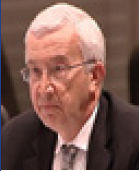 “Ten years from now the challenges will be much greater than today if we fail to respond now. Adapting strategies such as circular economy are essential, but not sufficient. Ecological education has an important role to play because ecology is universal in conception and embraces all dimensions of life.” “Ten years from now the challenges will be much greater than today if we fail to respond now. Adapting strategies such as circular economy are essential, but not sufficient. Ecological education has an important role to play because ecology is universal in conception and embraces all dimensions of life.”
Alberto Zucconi, President, IACP;
Secretary-General, WUC 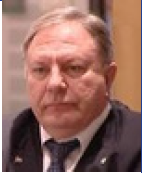 “Education is the only known social technology capable of preparing humanity to consciously surmount the barriers to effective action. Education
plays a crucial role in the social construction of reality. The world today urgently needs a paradigm change in education in order to enable people to deal effectively with the mounting challenges facing humanity.” “Education is the only known social technology capable of preparing humanity to consciously surmount the barriers to effective action. Education
plays a crucial role in the social construction of reality. The world today urgently needs a paradigm change in education in order to enable people to deal effectively with the mounting challenges facing humanity.”
International cooperation in the field of education can be a powerful catalyst for achieving sustainability, especially in developing countries with expanding economies. WUC was invited to conduct a special session on the Future of Higher Education at the 20th international conference organized in association with Green Cross International and Green Cross Russia at the Gorbachev Foundation in Moscow on June 26-27, 2014. Our present way of life has resulted in an unprecedented crisis that compels us to evolve new ways of thinking and acting. We confront a problem of social and cultural transition, not merely of technology. Alexander Likhotal, President of Green Cross International (GCI) and Director of WUC, delivered an address on “Environmental Education and Socio-Cultural Modernization”. He stressed the need for a new paradigm – not just a change in model, but a change in the very basis of civilization founded on the recognition that human beings are the primary resource for development. The central purpose of economy should be development of human beings, rather than unbridled consumption. Speaking of a coming revolution in global higher education as an essential need and inevitable response to the compelling global challenges, WUC CEO Garry Jacobs said that increasing access to education and raising the quality are essential, but the revolution must go further. There needs to be a radical reorientation of higher education to attune it to the rapidly changing needs of the 21st century, most especially the demands for employability and ecological sustainability. At a more fundamental level, he called for the introduction of ecological thinking in all fields of knowledge. We need a global system of higher education that draws on perspectives from many different cultures. The mission, objectives and planned activities of the Consortium and the fundamental principles on which it is based were presented by Alberto Zucconi. He described the coming revolution in higher education, and WUC’s mission to steer the movement in the right direction. |
|||
WUC CHARTER MEMBER: GCI |
|||

BioVision, Library of Alexandria, Egypt, April 2014 |
|||
|
The current revolution in online education and WUC’s leading-edge endeavor to promote accessible and affordable world-class higher education received special focus at the 7th Biennial International BioVision conference at the Library of Alexandria on April 7-9, 2014. A specific goal of BioVision Alexandria was to increase participation of developing countries and create significant roles for them in the global exchange of knowledge and best practices. WUC was invited to conduct a special plenary session and workshop at the conference. 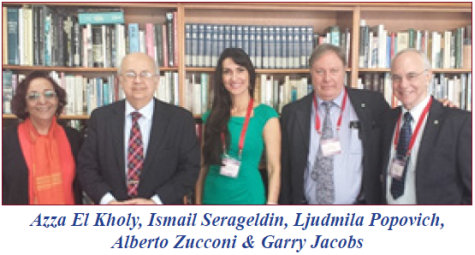
WUC representives highlighted the need for a comprehensive metaframe of learning and knowledge and called for the creation of foundation courses which address the interrelated nature of all aspects of human and planetary ecology, the principle and process of accomplishment relevant to a trans-disciplinary science of society, and the study of universal values needed to support the next stage of human development. Ismail Serageldin, Director of the Library and Director of WUC, explored the need and potential for reinventing the concept of university to attune it to rapidly changing social needs by harnessing newly emerging technologies. |
Garry Jacobs emphasized the need for a dramatic and immediate expansion of the global system of higher education to accommodate the tremendous influx of students in the next ten years. Alberto Zucconi delineated the foundational tenets and organizational principles of WUC. Working in collaboration with universities, research institutes, NGOs, corporations and governments, WUC is working to develop and disseminate new types of transdisciplinary courses, new pedagogical methods and technologies, and new strategies worldwide. Ljudmila Popovich identified WUC as a New Culture of Learning. WUC seeks to transform the very way in which educational institutions and universities function. She pointed to the organizational, policy-making, funding, technical, curriculum, pedagogical and consciousness changes required to make the great leap toward such a globally transformative goal. Azza El Kholy, Head of the Academic Research Sector of the Library of Alexandria, stressed the need for greater emphasis on Humanities, not only in the programs across the disciplines but also in any discussion of the future of research, knowledge and social advances. 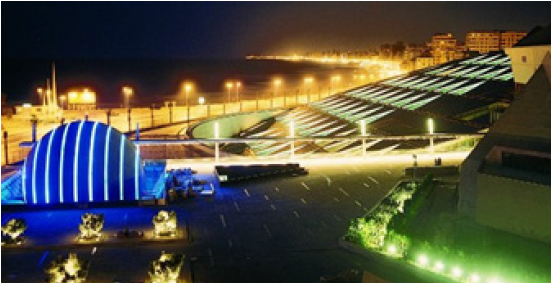
|
||
WUC CHARTER MEMBER: BA |
|||

|

|
||

WUC supports Whole-of-University Promotion of Social Capital, Health and Development at Poznan, Poland, Sep 2014 |
|||
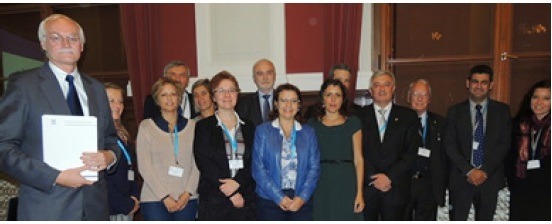
A curriculum that promotes trust, social capital, good government, ethical business and individual behavior, and enables universities to contribute to better health and development was proposed during the annual meeting of the Compostela Group of Universities (CGU) at Poznan, Poland on 26 Sep 2014. The 70 participating universities at the conference unanimously adopted the “Poznan Declaration” on “Whole-of-University Promotion of Social Capital, Health and Development” aimed to foster the transmission of values such as transparency and ethical behaviour among future professionals through their promotion in university education. These measures lay the foundations for the |
improvement of social capital, a general increase of trust in the public and private institutions and, ultimately, for the increase of human welfare in Europe and beyond. The Declaration proposes the implementation of a series of common dispositions applicable to the different fields of knowledge. Alberto Zucconi, Secretary General, WUC, represented WUC at the meeting.
|
||
Pioneers in Education: Personalized, Interactive Online Learning can transform Higher Education
|
|||

WUC supports universalizing access at Allahabad Conference in India
|
|||
Pioneers in Education: Annotations Enrich Online Educational Content |
|||
|
Genius is an online knowledge base. It allows users to provide annotations and interpretation of song lyrics, news stories, poetry, and other forms of text on the Genius website. Students can add comments, notes and links for videos, music and photographs to amplify and annotate what they are reading. They can also offer suggestions to improve already published texts and annotations. The students sharing comments on the passages they are working on in real time helps improve the learning experience. The tool helps the teacher grade the students and keep track of students’ improvements in a large classroom.
In his experience in using Genius in the classroom and working |
with teachers who are using it, he sees peerlearning: students both learn from each other – reading one another’s annotations – and collaborate on creating knowledge – using Genius’ suggestion feature to develop deep, co-authored analyses of text. Underlining the value of multimedia in higher education, Dean says that it makes education more engaging, for instance texts are brought to life with pictures and video. It also allows different types of students to engage with content. A visual learner might be more comfortable to offer an image as a statement of meaning than text. He sees that online tools allow us to sustain and enhance the intellectual energies of a brick and mortar classroom across space and time. When physical face-to-face meeting is not possible, emergent technologies can create a seminar atmosphere for those teaching and learning at great distances. However, putting a lecture online is only a simple first step. True democratization of knowledge is about knowledge production, not just consumption. Students from across the world need to be given the tools and opportunities to share their ideas and converse with traditional experts and each other more effectively. |
||

|
|||
Changing Educational ParadigmsMOOC-based degrees, competency-based education, formalization of learning and regulatory reform are factors that bring fundamental change to the status quo in educational practice. Competency-based education improves the alignment between program curricula and employable skills. Qualification frameworks are being built as standards that define the knowledge and skills that a credential should represent. Radical alternatives to regulatory reforms like accreditation, and federal financial aid eligibility are employed to kindle innovation. |
Rising Tuition CostsThe net prices charged for the lowest-income students, after discounts and financial aid, continue to rise faster on average than the net prices charged for the higher-income ones, according to the U.S. Department of Education. Universities and colleges concede that financial aid based on merit, as opposed to need, is increasingly important to attract academically talented students. The Century Foundation, a nonpartisan think tank, points out that there are powerful incentives for universities to avoid admitting and enrolling low-income students. |
||

WUC engages Indian business leaders in Value-based Management Education |
|||
|
WUC collaborated with London College of Business and Finance (Kochi) and The Mother’s Service Society, a WUC charter member, to conduct a two day course “Evolve: Engaging Leadership in Values & Empowerment” at Kochi, India on November 22-23, 2014. The conference was attended by 84 business leaders, management consultants and faculty. “Management is an integrated field of accomplishment encompassing individuals, organizations and society at large. Like other academic disciplines, it has become fragmented into innumerable specialized sub-disciplines that are becoming increasingly disconnected from one another,” explained Garry Jacobs, CEO of WUC and Vice-President, The Mother’s Service Society. “Management Science has developed many powerful tools for business, but in the process we have lost sight of |
|
||
WUC CHARTER MEMBER: MSS |
|||

Automated Grading SoftwareComputer scientists at EdX are working on the Enhanced AI Scoring Engine(EASE). EASE grades essays, not just multiple-choice questions, and can learn to imitate the grading styles of professors. EdX’s university partners are using EASE to provide feedback to students in Massive Open Online Courses (MOOCs). 3D Printers for Education3D printers are a type of industrial robot that constructs physical objects from digital content. Successive layers of material are laid down under computer control and objects of almost any shape or geometry are produced. Online repositories such as Thingiverse and MeshLab, provide free, digital designs for physical objects where users can download the digital design information and print the object themselves. Students can examine 3D printed specimens of rare fossils, crystals, fragile artifacts, synthetic skin and also invent new objects. |

Reality of College Completion RatesOver the past 20 years in the US, more than 31 million students have enrolled in college and left without receiving a degree or certificate. To improve the completion rate, policymakers need to address the roadblocks by options such as enabling transfer of college credits and flexible federal financial aid regulations. Platform for Job RecruitmentFrench startup Agorize offers a platform that links corporates with start-up companies and student communities. It relies on open innovation and community crowdsourcing to let companies gather data on new ideas and ventures. Organizations get better recommendations and data compared to the solutions offered by anonymized marketing survey. Students from 2000 universities actively participate with Agorize, and are rewarded with jobs by its clients like Google, Microsoft and Bank of America. |
||

|
|||
|
Competency-based Education (CBE) is a self-paced student-centered approach that allows students to advance based on their proficiency in a subject. CBE allows students to make progress as they demonstrate mastery of the subject, breaking free of the restrictions of the time-based system. Those already familiar with the subject can complete assignments, take tests and earn credits. Others can take their time without the pressure of due dates for paper submission or exams. This personalized, flexible learning model also helps to translate prior learning and experience into academic credit. The system can be implemented in the traditional school or college course, however, Internet and Communication Technologies (ICT) make CBE far easier to implement in the online learning system. CBE tools that define learning outcomes, map competencies to the course curriculum and track students’ progress are emerging.
|
|
||
Pioneers in Education: Adding Credibility to Learning outside the Classroom
|
|||

|
|||
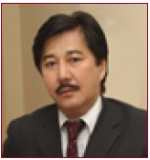 KazNU’s Rector
KazNU’s Rector 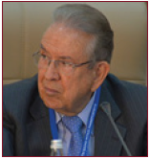
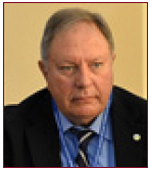
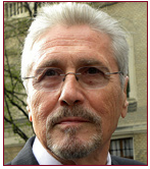
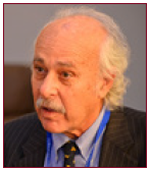
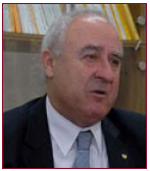
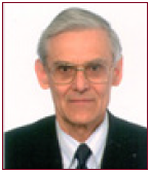 Formal education, lifelong learning and the changes needed to create a new paradigm were examined by
Formal education, lifelong learning and the changes needed to create a new paradigm were examined by 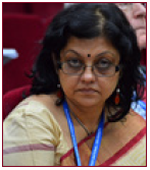 Scientist, writer and WAAS Fellow
Scientist, writer and WAAS Fellow 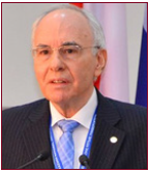 In the concluding session,
In the concluding session, 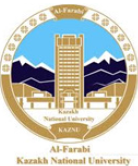


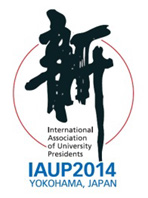 Education is the technology humanity has developed to consciously accelerate our collective social evolution. It plays a key role in the development of new knowledge and theoretical understanding and also in passing on to youth the accumulated knowledge of humanity so the next generation can start off where we have left off and progress further, rather than constantly repeat old errors and reinvent the wheel. Incremental expansion of the existing educational system will not be sufficient to meet the needs of humanity in the 21st century. Rapid social and technological change poses serious threats to the existing system and necessitates the emergence of a new vision. These were some of the ideas presented at the special session conducted by the World University Consortium at the
Education is the technology humanity has developed to consciously accelerate our collective social evolution. It plays a key role in the development of new knowledge and theoretical understanding and also in passing on to youth the accumulated knowledge of humanity so the next generation can start off where we have left off and progress further, rather than constantly repeat old errors and reinvent the wheel. Incremental expansion of the existing educational system will not be sufficient to meet the needs of humanity in the 21st century. Rapid social and technological change poses serious threats to the existing system and necessitates the emergence of a new vision. These were some of the ideas presented at the special session conducted by the World University Consortium at the  “Higher education today faces the great challenge of expanding access to quality education, fostering innovation, adapting new technologies, forming partnerships and leveling the playing field.”
“Higher education today faces the great challenge of expanding access to quality education, fostering innovation, adapting new technologies, forming partnerships and leveling the playing field.”
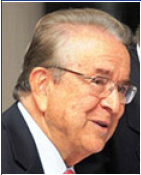 “The challenge we face in higher education is to rapidly expand accessibility and affordability while increasing the content, quality and relevance of what is taught
to meet the needs of a new generation, including employability, team and leadership skills, environmental understanding, creativity, innovation and original thinking.”
“The challenge we face in higher education is to rapidly expand accessibility and affordability while increasing the content, quality and relevance of what is taught
to meet the needs of a new generation, including employability, team and leadership skills, environmental understanding, creativity, innovation and original thinking.”
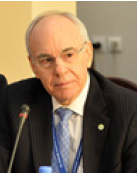 “A revolution is coming in higher education. There is urgent need for new thinking and new models that will best meet the diverse needs of humanity.”
“A revolution is coming in higher education. There is urgent need for new thinking and new models that will best meet the diverse needs of humanity.”
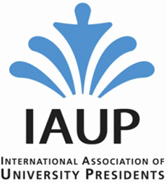
 Even the finest examples of the previous century will be insufficient to provide quality, relevant education to all who seek it. New paradigms in knowledge are achieved by unifying phenomena that were previously considered separate and independent, as Maxwell unified electricity and magnetism and Einstein unified matter and energy. There is an urgent need for leadership in thought and action to bridge the gulf between the university and the society, to unify teaching with active learning, and to unify theory in the social sciences with the realities of social life. A trans-disciplinary science of society is needed that integrates the objective and subjective, collective and individual, past and future dimensions based on values of human dignity, welfare and well-being.
Even the finest examples of the previous century will be insufficient to provide quality, relevant education to all who seek it. New paradigms in knowledge are achieved by unifying phenomena that were previously considered separate and independent, as Maxwell unified electricity and magnetism and Einstein unified matter and energy. There is an urgent need for leadership in thought and action to bridge the gulf between the university and the society, to unify teaching with active learning, and to unify theory in the social sciences with the realities of social life. A trans-disciplinary science of society is needed that integrates the objective and subjective, collective and individual, past and future dimensions based on values of human dignity, welfare and well-being.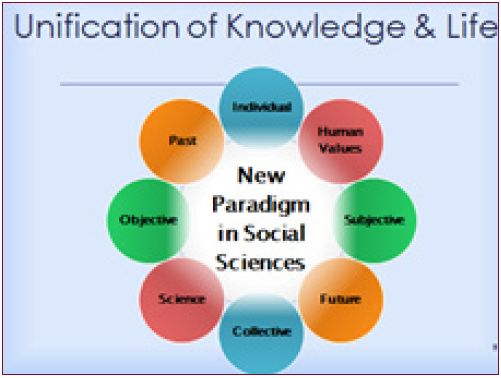 These were some of the points highlighted by
These were some of the points highlighted by 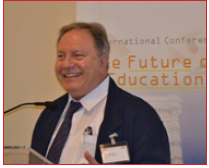 quality higher education worldwide based on a human and person-centered approach is urgently needed not only to accelerate development in the field of higher education, but also to successfully address the wider economic, political and ecological challenges confronting humanity today.
quality higher education worldwide based on a human and person-centered approach is urgently needed not only to accelerate development in the field of higher education, but also to successfully address the wider economic, political and ecological challenges confronting humanity today.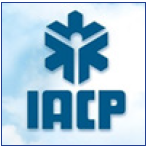
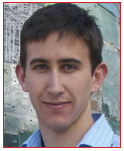 UnCollege is a social movement changing the notion that college is the only path to success. It offers the Gap Year Program, a year long program of self-directed learning. The curriculum consists of workshops that focus on the habits and practices of successful people, discussions, workshops on technical skills, meetings with successful individuals and peer-led reviews. The program helps enhance the trainees’ skills, make connections, find mentors, develop their capacity for independent, self-directed learning, and put them on their path to financial independence. It provides resources for students to define their own educational paths.
UnCollege is a social movement changing the notion that college is the only path to success. It offers the Gap Year Program, a year long program of self-directed learning. The curriculum consists of workshops that focus on the habits and practices of successful people, discussions, workshops on technical skills, meetings with successful individuals and peer-led reviews. The program helps enhance the trainees’ skills, make connections, find mentors, develop their capacity for independent, self-directed learning, and put them on their path to financial independence. It provides resources for students to define their own educational paths.

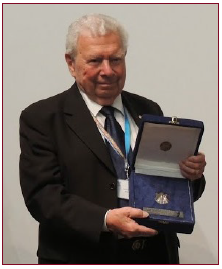 At the conference, the XVIII International Prize Grupo Compostela-Xunta de Galicia for outstanding work in promoting the common European ideal, education and the preservation of cultural heritage was awarded to the Swedish scientist and WAAS Fellow
At the conference, the XVIII International Prize Grupo Compostela-Xunta de Galicia for outstanding work in promoting the common European ideal, education and the preservation of cultural heritage was awarded to the Swedish scientist and WAAS Fellow 
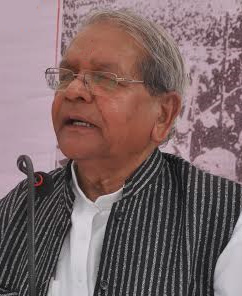 On November 14, 2014, Nehru Gram Bharati University (NGBU) of Allahabad, UP, India became a member of WUC at a public conference attended by upwards of 1000 political and community leaders, faculty and students. Chancellor
On November 14, 2014, Nehru Gram Bharati University (NGBU) of Allahabad, UP, India became a member of WUC at a public conference attended by upwards of 1000 political and community leaders, faculty and students. Chancellor 

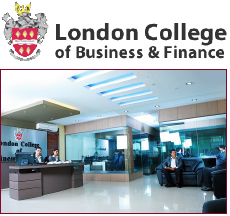 the big picture. In future we need to develop an integrated science of Management which regards businesses as living organizations that draw energy from the society, customers, employees, suppliers and other stakeholders to provide goods and services to meet social needs in an effective manner. We need to develop scientific knowledge of the energy that drives business growth, the power of organization to transform energy into productive usable results, the process by which businesses develop in symbiotic relationship with society and by fostering the development of capacities in employees.”
the big picture. In future we need to develop an integrated science of Management which regards businesses as living organizations that draw energy from the society, customers, employees, suppliers and other stakeholders to provide goods and services to meet social needs in an effective manner. We need to develop scientific knowledge of the energy that drives business growth, the power of organization to transform energy into productive usable results, the process by which businesses develop in symbiotic relationship with society and by fostering the development of capacities in employees.”
